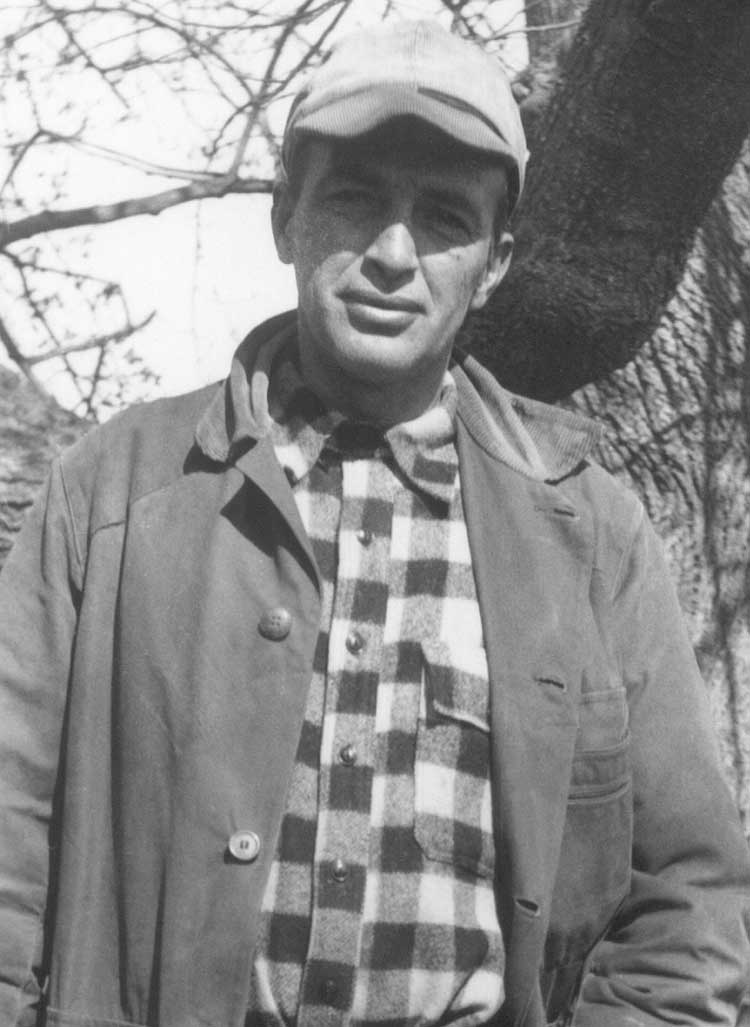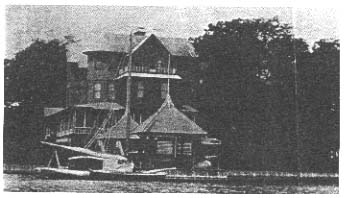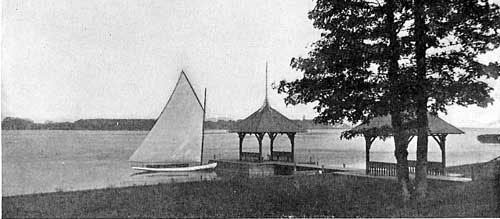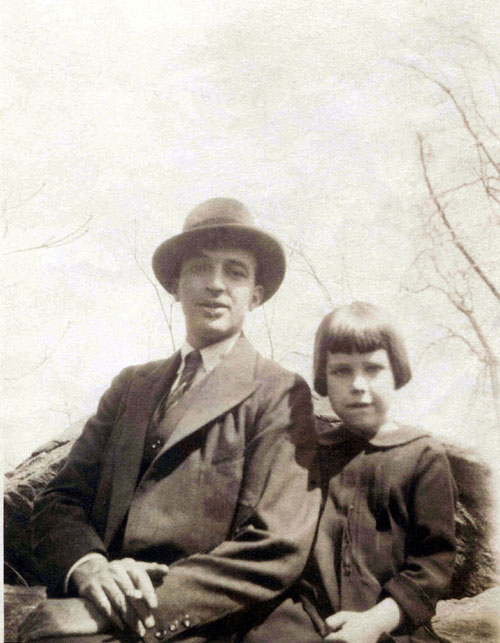THE DANAS & MOSS LOTS
Because he was the last male heir to the Dana “Moss Lots” estate and a close pal of Dodi Knapp and Willis Penney and that much of what he did and didn’t do affected the course of events in Mastic, my study of the Dana family seems to focus on William Dana Shepherd 1892-1939, who became William Shepherd Dana when his grandpa Buck adopted him in 1908 under the condition he reverse his name.
If I have any regrets, it’s that I didn’t start this this whole Knapp / Mastics/ Dana / project when Dr. Doug Steeples started his. in the mid 1960’s. So many of the principal players were still alive then : Ella Dana, Willis Penney, Ethel and Leora Dana, Marion Knapp ( I know that Doris Dana still is and I really need to contact her ) As a historian of some sort, I am naturally curious about the Dana families history too. Much of what I learned and will pass on here, is taken from Dr. Steeples book “Advocate for American Enterprise : William Buck Dana and the Commercial and Financial Chronicle, 1865- 1910” (how’s that for a title?) Greenwood Press 2002. Dr. Steeples is a former Dean at Mercer University in Georgia and although his book is primarily about recognizing the contributions Buck Dana made to the American Enterprise system, his research into the Dana family life is enlightening and quite thorough.
There are some amazing parallels between Dana and Dodi. Both were born in 1892, and both into very wealthy publishing families, Although Shep’s Dad did not make a go of it due to alcohol, Shep was raised in a very financially secure enviorement at Mastic by his mother Daisy (although she was trying hard to put them all in the poorhouse with her spending ) and his grandfather, Buck who reportedly doted very heavily on him.
Although I do not know for certain how J.F. Knapp got the nickname Dodi, I do know it generally is derived from the expression “To Dote On” A sentence from Steeples Book certainly supports that would be the case with Shep Dana’s childhood: “a succession of tutors for young William came and resigned complaining that Ethel’s (Daisy’s) constant interference made it impossible to teach and discipline him” (pg 62)
Both were raised around boats and spent their entire lives playing with them. There are many reports of Shep racing his sailboats “The Ethel S.” and “Daisy” in sanctioned yacht races held all along the Great South Bay at Moriches, Bellport, Sayville etc. There is a short piece in Steeples’ book about grandfather Buck “relishing the days when he could stand at the waters edge in Mastic and watch the youth race in sailboats. On at least one occasion,wearing customary formal attire and overcome by excitement, he fell into the river”
Dock at Moss Lots 1909
Both of these guys seemed to have little interest into actually going to work for their family. It was Bucks hope that Shep would take over the Chronicle, but there is little evidence that he spent any time there especially after Buck died. Dodi who had a title at American Lithographic Co, always seemed to be in his fathers shadow, as far as business was concerned. He retired in 1929 at the age of 37 and spent the next twenty three years as gentleman of leisure until a heart attack killed him in October of 1952. Although Shep had three daughters by his first marriage 1915-1929 , Dodi and Gertrude and then Marion Knapp who were married from about 1928 until 1952 never had children that I know of. It has been told to me that Shep’s wife Alberta worked hard at keeping him from seeing his children grow up and that this deeply troubled him.
Miss Daisy
She was born Fannie Oscarina Payfer in 1866, and two years later on May 15. 1868 left the orphange of the American Female Guardian Society of New York as Ethel (Daisy) Floyd Dana. Like her two 1/2 brothers Jack and Dick, who also came from there, Daisy was afforded the nurturing, care and schooling of two very thoughtful, educated and wealthy parents.
The Danas main residence in the 19th century was “Greycliffs” in Englewood, NJ, but they spent their summers in Mastic. Buck would invent games for the children to play and Kitty was remembered for her kindness and storytelling. As I mentioned earlier all three children fell way short of their parents hopes for them, both in school and laterlife, although Kitty did not live to see that. Daisy the middle child was twenty when Kitty passed away in 1886. She married Frederick Shepherd of Minneapolis (Daisy went to boarding school there) in 1891 and the following year William was born.
Unlike her two brothers who’s problems as adults unfolded far from home, Daisy and her troubles never left Moss Lots. Her husband Fred tried his hand at banking and working at the Chronicle but neither worked out as he battled with alcohol dependency problems just like his two brother in laws. The Shepherd marriage ended in 1903 when Bill was 11. It seems a bit ironic that Buck whose editorials influenced many of the great financiers in American history, could not do anything to help his daughter whose chief shortcoming seemed to be handling money. It is well documented that he certainly tried very hard and it must of been exasperating for him. Extremely self indulgent and extravagant, Daisy was the cause of much strife at Moss Lots as firms like Gorham Silver, sued to get paid for things she ordered. In 1909 she hired Louis Tiffany to redecorate the mansion and the lawsuit that followed was still going on in 1911. Buck had left 2 million dollars to the estate and when Daisy passed away four years later, her affairs were in such disarray that Shep would resign as executor of her estate declaring it insolvent.
Alberta & Ella
In 1915 Shep married Alberta Benham Carson and they had three daughters Ethel, Leora and Doris before their marriage ended in divorce in 1928. Inspite of what had to be some degree of trauma living in a broken home, all three daughters went on to great success. Ethel became a physician, Leora a noted stage and screen actress and Doris the translator, companion and executor for Chilean poet Gabriela Mistral (1889 -1957) a Nobel prize winner. Shep remarried a very short time later to his Mastic neighbor Ella M. Lindley Baker, whose own first marriage to a William Edgar Baker an architect was reported to be a stormy one. (He threatened to shoot her) Ella’s mother was a Floyd and the Bakers who were married in 1914 lived on the Floyd estate about a mile south of Moss Lots.
Bill Dana had a horse ranch in Reno, Nevada. In the twenties and thirties Reno was a place where many people went for divorces because they were granted very quickly. In fact FDR’s daughter lived at the Dana ranch when she wanted her divorce. This report from the gossip column of the NY Daily News on Bill and Ella, Edgar and Alberta is somewhat amusing for its style and inaccuracy. eg “The Ritzy Folk of Mastic” “The FORD River” etc. and the most preposterous statement……”Mr. Baker doesn’t even know Mr. Dana!” Ella must of thought so too as she kept it and it now resides in a folder in the Dana Papers at the Floyd estate.
DAILY NEWS TUESDAY FEBRUARY 19, 1929
Reno Court Cure Patching Mixed Millionaire Love
By WILLIAM RICE
Out there in Reno where gin flows fast and freedom is a mere matter of residence and an “extreme cruelty” charge, a romance that budded by the pleasant waters of the Great South Bay last summer and set the ritzy folk of Mastic , L.I. talking is rapidly coming to a modernistic grand finale.
Yesterday dispatches brought word that Ella Marian Lindley Baker, Junior League member is soon to get her decree from E. (sic) Edgar Baker architect and society clubman.
ENTER MR. DANA
That in itself was not entirely new but the same wires buzzed with talk of one William Sheppard (SIC) Dana, a millionaire not of the Social Register who severed the bonds of matrimony last November leaving Mrs. Anna (sic) S. Dana mother of two children a gratis widow (SIC).
Dana is in Reno with a Rolls Royce. He and Mrs Baker are seen everywhere together and when Mrs Baker is free it is reported they will be married.
Out in Mastic the Baker and Dana homes stand empty on either side of a pitcheresque cove of Ford’s (SIC) river, a partly fresh, partly salt arm of the Great South Bay.
FIRM FRIENDS !
The two couples were leaders of the colony there for years until the summer before last. Dana had a speedboat, in fact he had several boats and autos and he loved the outdoors. So did Mrs. Baker . They were much in one anothers company. But last June there was a mysterious meeting in one of the big houses and soon Dana and Mrs. Baker both disappeared.
Baker now makes his home at the Princeton club. He doesn’t even remember knowing any one by the name of Dana he says. He and Mrs Baker had settled their dispute it seems. She retains the household goods and the autos and boats and keeps the big estate at Mastic, although he retains a half interest which he cannot sell under the agreement unless she sells her half.
ANONYMOUS VILLAIN
In her suit Mrs Baker charged her husband with extreme cruelty of accusing her of undue friendliness for a mutual friend and with threatening to shoot her unless she got out of their home. Mrs Dana is now at the Dana town house at 912 5th Ave, She listened carefully to the news from Reno then refused to discuss it.
The statement that Baker never heard of Dana is so absurd. They were all in the same family living on bordering estate property. Ella (a Floyd) was technically Shep’s cousin. Edgar managed the Tanglewood Poultry Farm that was on the estate too. There was probably not a soul in Mastic / Moriches area that did not know the name Dana.
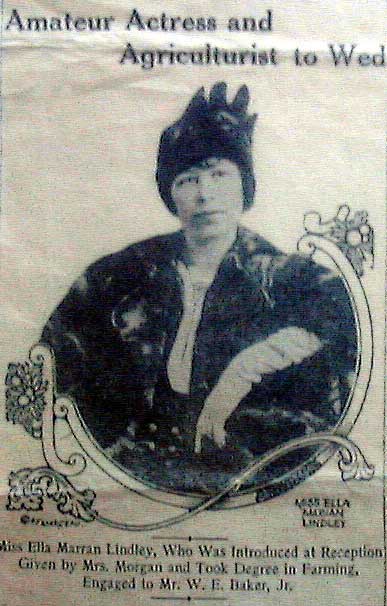
The picture on the left of Ella is of her engagement announcement to W. Edgar Baker in 1914. I wonder if she encouraged her step daughter Leora to be an actress Leora was in many Broadway plays and movies like Some Came Running, 3:10 To Yuma, Pollyanna, Baby It’s You.
On New Years Day 1939 Bill Dana died unexpectedly. He was 45 years old. Three months later Dodi left the area and his mansion was offered up for a sacrifice price. It did not sell though till New Years Eve in 1940. Ella Dana lived out her days in Mastic. She moved out of Moss Lots in the ’60’s and stayed in a smaller home on the Dana estate and also on a ranch in Arizona. She passed away at 88 years of age in August of 1975.
